Baidu Unveils "AI Search" Amidst Competition from Douyin and Xiaohongshu
![]() 01/09 2025
01/09 2025
![]() 438
438
To triumph in the search war, Baidu must embrace a broader perspective.
Baidu has finally awakened to the urgency of revitalizing its core search business.
On the first workday of 2025, Baidu Search's official account announced the launch of "AI Search" on PC platforms. According to the announcement, traditional search methods often demand significant time and effort, often leading to complex result pages. "AI Search" aims to revolutionize this scenario, ushering in an era of precise, efficient, and intelligent search.
As Baidu's strategic move to rejuvenate its core search business, what capabilities does "AI Search" offer? Does it live up to the hype?
01
Is Baidu's "AI Search" actually a novelty?
For a search product, the search function itself is paramount.
During my in-depth exploration, I discovered that "AI Search" has transformed the fundamental search function from traditional to AI+Search. Any query is processed through AI thinking before being presented. While Baidu Search previously introduced AI intelligent answers, they were not consistently provided for all queries due to unspecified reasons or logic, requiring users to sift through numerous links. "AI Search" circumvents this issue.
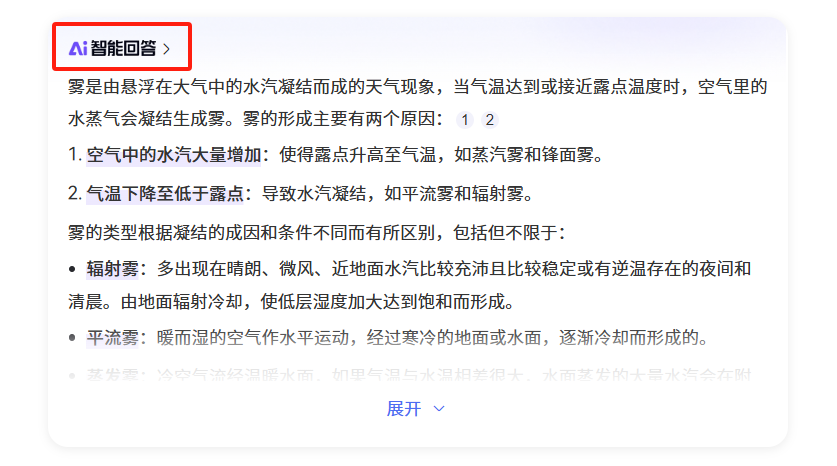
Sporadic AI intelligent answers in Baidu Search
Furthermore, as a search engine, the time between querying and receiving an answer in "AI Search" is significantly shorter compared to in-depth search by large model applications, catering to the instant search needs of most users (as a slow answer might as well be found through traditional search results).
Regarding answer quality, Baidu, with its vast information repository and continuous iteration of AI search capabilities, has made substantial progress. Issues prone to errors and hallucinations in the past have been largely resolved.
Beyond evolving search to AI+Search, inspiration exploration is a notable upgrade for "AI Search".
Inspiration exploration is straightforward; it expands associative outward based on your query and displays them in the right column.
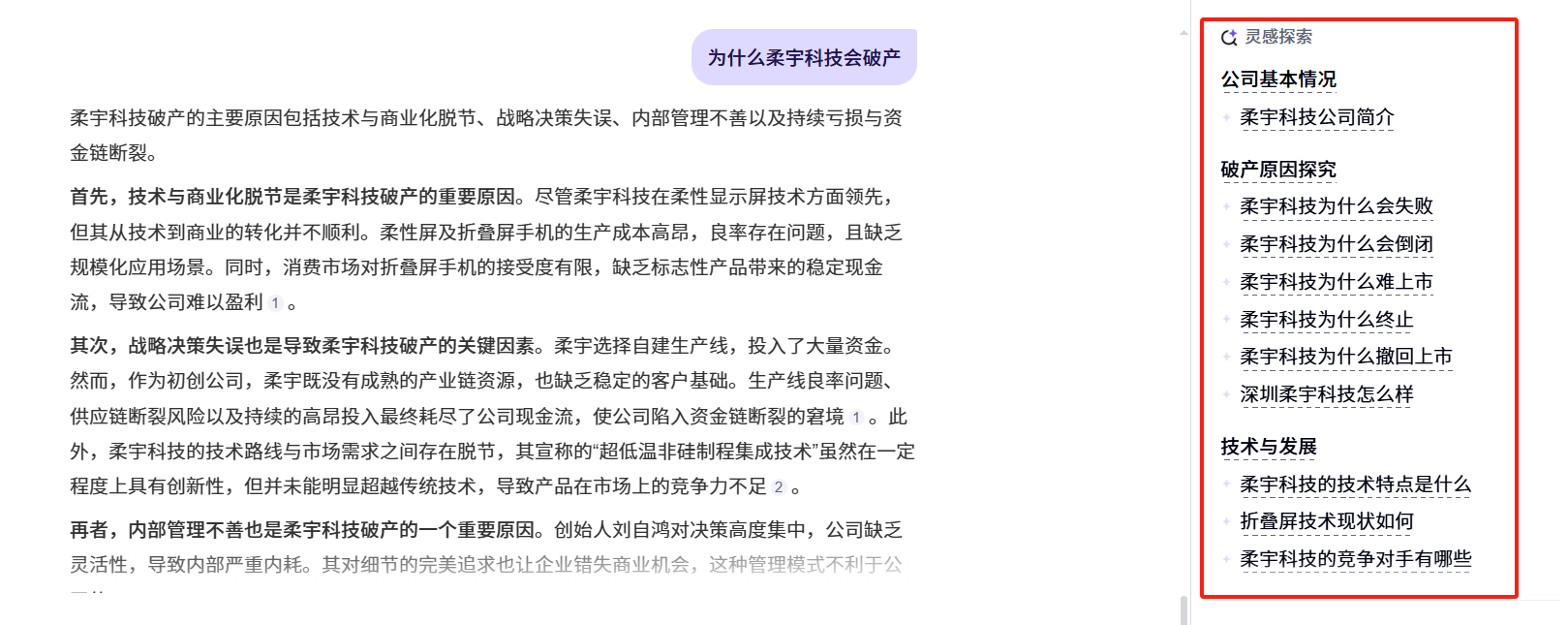
According to Baidu Search's official post, "Starting with a simple historical question, 'Inspiration Exploration' delves into the event's causes, interpersonal relationships, overall situation, and historical background. For film or TV works, it synchronizes online audience discussions based on network dynamics, immersing you in the search process. This feature makes 'search behavior' enjoyable."
However, the most significant evolution of "AI Search" compared to Baidu Search is the elimination of paid top placements, significantly enhancing user experience.
Beyond search, "AI Search" also includes functions like intelligent creation, image editing, AI reading, and selected intelligent agents, but most are merely aggregated features.
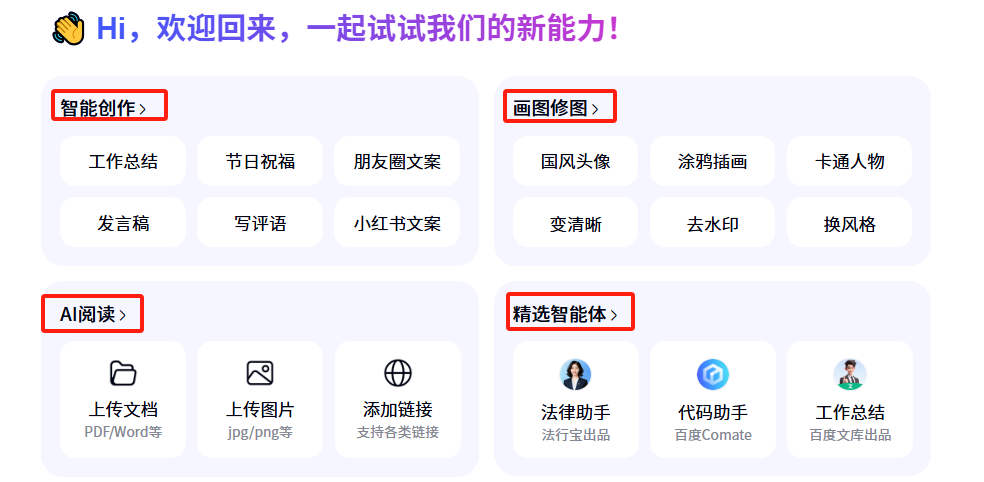
Intelligent creation, as the name suggests, aids users in content creation for various purposes in scenarios like office writing, education, creative copywriting, and collaboration tools.
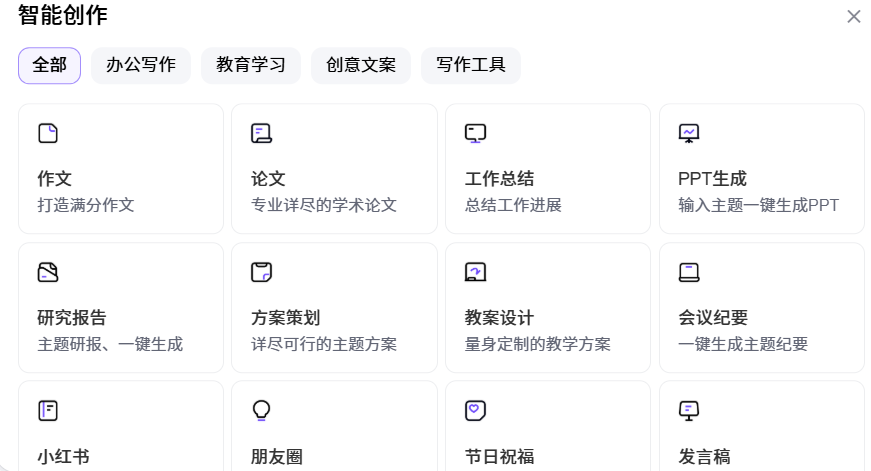
Image editing generally resembles large model image generation, but its distinctive features lie in the image editing toolbox. For instance, clarity enhancement is mostly integrated into mobile phones, while few large models incorporate it into image generation; watermark removal is another user-needed feature not yet monopolized.
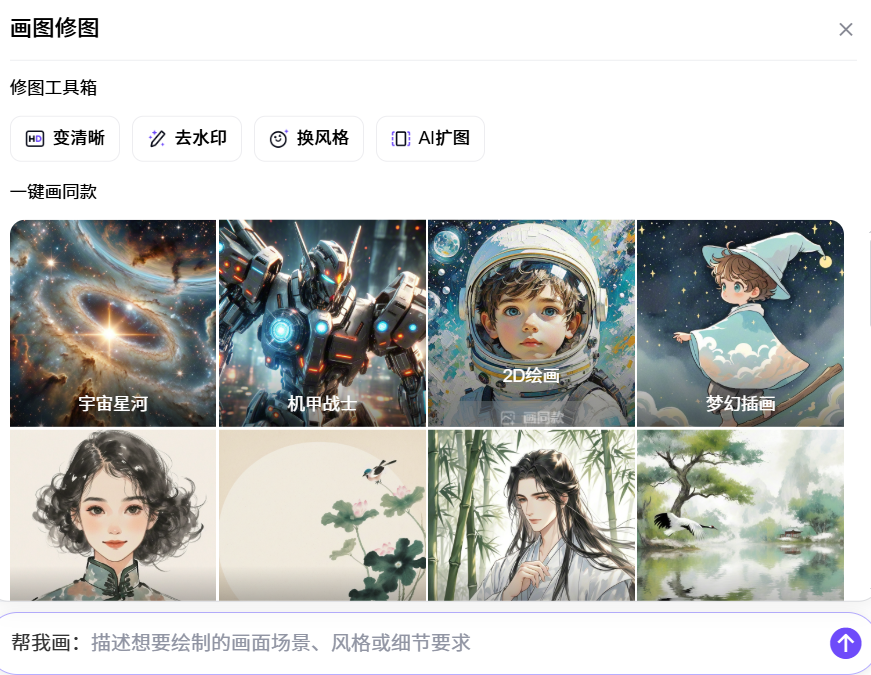
The AI reading function, long a staple in large model applications, allows users to upload files, images, or links for interpretation.

The final intelligent agent function is not new, similar to AI reading. It integrates the familiar Baidu ERNIE Bot into "AI Search", enabling users to quickly access intelligent agent services.
02
AI alone cannot save Baidu Search
After discussing "AI Search's" functions, let's address some puzzling aspects and potential issues with Baidu's product line.
While fully opening AI retrieval and integration output functions is an improvement over traditional search, what puzzles me is that Baidu Search already had an AI intelligent answer module, and the answers from "AI Search" are often similar, as shown below.
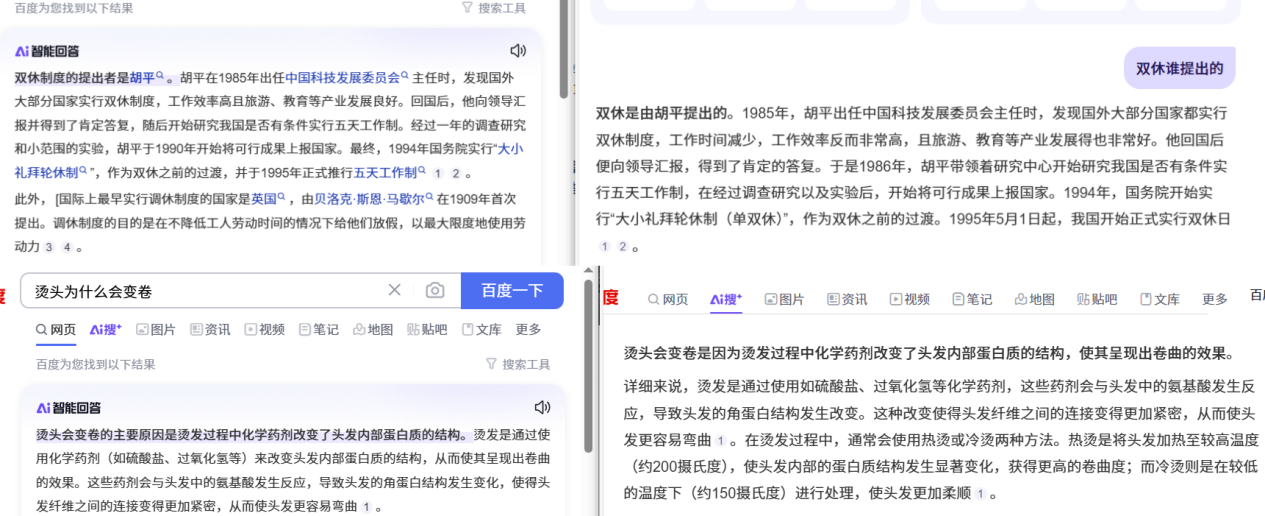
Left: Baidu Search AI intelligent answer; Right: "AI Search"
Given their similarity, why launch another "AI Search"? By integrating full AI search into the AI intelligent answer module, users could access "AI Search's" core functions and select valuable content from links below.
Besides Baidu Search and "AI Search", Baidu's large model product ERNIE Bot (Wenxin Yiyan) also handles many search-related tasks.
At the 2024 Baidu VIGE Conference, Xue Su, Baidu's Vice President and head of AI innovation business, stated that users made over 1.43 billion calls on the Wenxin Yiyan App in the past year, with Q&A being the most frequently used function, core to its AI search capability.
Why do Baidu Search's AI intelligent answer, "AI Search", and Wenxin Yiyan coexist with nearly identical functions? Have different product managers overlooked the potential for "internal competition"?
Functions beyond search, like intelligent creation, image editing, AI reading, and selected intelligent agents, are aggregations from Wenxin Yiyan and Wenxin Yige, with minimal new features.
This is perplexing. If Baidu aims to promote AI+Search, optimizing AI intelligent answers would suffice; if it needs a page integrating various AI functions, promoting Wenxin Yiyan would be more effective. Simply renaming and redesigning Wenxin Yiyan won't reverse Baidu's decline.
A logical explanation is that "AI Search" is Baidu's response to competitors encroaching on the search field.
Last August, Douyin launched its fourth independent search app, "Douyin Search," challenging Baidu's core business. In December, Xiaohongshu introduced an AI search product called "Diandian" focused on lifestyle scenarios, followed by internal testing of a new search function, "Ask Diandian." Reportedly, Xiaohongshu's average daily search volume neared 600 million in Q4 2024, doubling from 300 million in mid-2023.
With UGC giants like Douyin and Xiaohongshu pressuring, Baidu cannot sit idly by and watch its search traffic dwindle. Thus, "AI Search" might be its response.
However, its impact is limited to a reactionary measure. Xiaohongshu and Douyin Search's core competitiveness lies in their massive user base, authentic voices, and daily sharing, making Baidu's AI search ill-equipped to answer specific, trivial questions requiring subjective human input—currently where search holds the most incremental value.
Baidu's core search business faces an insolvable dilemma, but the solution must extend beyond the technology highlighted in Robin Li's New Year letter, emphasizing "our technological initial intention remains unchanged, and the future of AI is promising." The key lies in building an active ecosystem fueled by high-quality content producers and a vast user base. Attracting numerous active content producers and continuously engaged users like Xiaohongshu and Douyin seems a more daunting challenge for Baidu than leading in AI technology.
References:
1. "Baidu AI Search Launched! PC Search Renewal in Progress", Baidu Search;
2. "Just Experienced Baidu AI Search! These 3 Functions Have Completely Changed My Mind", Digital AI Roubing Li;
Editor: Zhong Xiang






